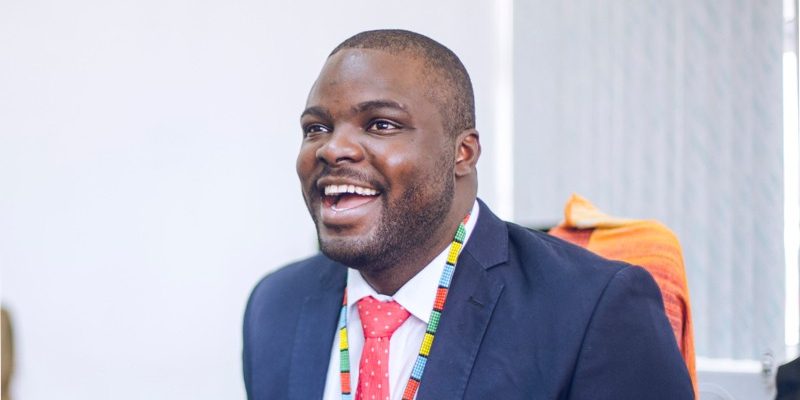Top Tech Advisor Iyin Aboyeji's Urgent Message to Startups: Build Now, Investors are Watching!

The year 2023 has presented a significantly challenging environment for startup funding, characterized by a general slump in investments. While there was a notable uptick in May, driven by substantial investments in companies like M-Kopa, Tyme Bank, and Sun King, analysts caution against false hope, drawing parallels to a similar deceptive surge experienced in February. This overall slowdown is attributed to several critical factors that have reshaped the investment landscape.
One primary reason for the decreased investor confidence and subsequent funding slump is the alarmingly high failure rate among startups, particularly those that had previously secured funding. Numerous promising ventures, such as Lazerpay, have ultimately collapsed despite initial high expectations. Concurrently, a pervasive global recession is impacting economies worldwide, reducing the capital available to investors and narrowing their margin for error. Consequently, investors are now exercising a far greater degree of scrutiny in their decision-making process than ever before.
In response to this tight funding climate, many founders, desperate for venture capital, are dedicating excessive efforts to crafting elaborate pitches designed to impress potential financiers. However, as succinctly put, ideas alone are insufficient. What truly defines a startup's worth and attracts serious investment is its underlying potential, coupled with demonstrated productivity, viability, and long-term sustainability. Nigerian serial startup investor, Iyin Aboyeji, strongly advises startups to prioritize these fundamental business aspects over merely perfecting their sales presentations. He emphasizes that focused business building is the most reliable path to securing funding, as discerning investors are actively observing and engaging with customers, existing investors, and competitors, and will initiate contact when a business demonstrates genuine strength.
This perspective fundamentally challenges the widely accepted practice of founders actively pursuing various venture capitalists. Instead, it suggests that truly viable and sustainable startups will naturally attract investors. This sentiment is echoed by Maxime Bayen, an expert in African tech startup funding, who, in a January 2022 interview, argued that startups should celebrate reaching their first major revenue milestone, such as $10,000 in Gross Merchandise Value (GMV), more than securing an $8 million funding round. Bayen posits that customers essentially act as a startup's first investors, and the ability to scale rapidly without external funding is a significant indicator of a healthy and robust business.
Furthering his counsel on strategic business development, Iyin Aboyeji advises startups, especially those operating in emerging markets, to concentrate on establishing repeatable revenue margins. He asserts that investors are currently willing to pay higher premiums for businesses demonstrating consistent revenue and strong margins, rather than solely for rapid growth. His adage, “Don’t go wide. Go deep,” underscores the importance of cultivating a financially resilient business model.
Central to this advice is the concept of being "default alive" versus "default dead." A "default alive" company is one that possesses the capacity to generate profit using its existing assets without requiring further external investment or input. Such a company is projected to become profitable before exhausting its current cash reserves. Conversely, a "default dead" company is anticipated to deplete its current capital without achieving profitability. While not necessarily indicating a permanent lack of viability, it signals a more challenging path to sustainability, potentially indicating a mismatch with the market. Investors overwhelmingly favor "default alive" startups because they offer tangible evidence of market demand and a higher likelihood of long-term success. Surprisingly, many founders, particularly in their early stages, neglect to assess whether their ventures are default alive, a crucial determinant for both success and investor engagement.
The investment landscape has also witnessed a significant shift away from the "shotgun investing" approach prevalent in previous years, notably 2022. This indiscriminate, 50-50 strategy is now considered obsolete. Modern investors are increasingly inclined to back ventures with whom they have cultivated relationships over extended periods, sometimes months or even years. Aboyeji notes, “Now we are back to regular programming where investors want to build a relationship with you over months or even years before investing. So always be in raise mode but don’t expect quick answers.” This indicates a move towards more informed decisions and meticulously calculated risks. Investors are demonstrating greater patience, a willingness to deeply understand team members, and a keen observational approach akin to a football scout. To secure funding in this new paradigm, startups must be prepared to engage in a "long game," proactively communicating their journey, sharing solutions, and highlighting significant milestones with prospective investors.
Ultimately, many startups falter because they struggle to transparently demonstrate their operational viability and sustainability, often appearing strong only on paper. Even if they are momentarily viable, a lack of sustainable practices can lead to a quick decline. Therefore, the imperative for startups is to construct exceptionally solid, market-ready solutions that align perfectly with market demand. When such a foundational business is established, investors are far more likely to approach with the necessary capital, recognizing true value and potential.
Recommended Articles
There are no posts under this category.You may also like...
The Stablecoin Wars: USDT, USDC, and New Entrants, Fighting for Global Dominance

The stablecoin market has evolved into a high-stakes battle for financial trust. As USDT, USDC, and new challengers like...
The Hypocrisy of Prayer! Holy Voice, Zero Humanity

In a world where faith often feels like performance, “The Hypocrisy of Prayer” exposes how modern religion hides behind ...
Jennifer Lawrence Bares All: From 'Die My Love' Intimacy to Cellulite Stand-Off

Jennifer Lawrence discusses her role in Lynne Ramsay's "Die My Love," detailing her comfort filming sex scenes with Robe...
Wicked: For Good Mania! Film Dominates Award Nominations and Reveals Behind-the-Scenes Magic

A new exhibition in Chicago will celebrate the illustrious career of costume designer Paul Tazewell, showcasing iconic p...
Regina Daniels' Family Crisis Explodes: Actress Breaks Silence as Mercy Johnson Demands Brother's Release

Nollywood actress Mercy Johnson has called for the release of Regina Daniels' brother, Sammy West, amid allegations of h...
Sterlin Harjo Unlocks 'The Lowdown' Finale Mystery & Teases Season 2 Shockers!

FX's 'The Lowdown' is a crime drama set in Tulsa, Oklahoma, featuring Ethan Hawke as "truthstorian" Lee Raybon, who delv...
Kenya's Wildlife Parks Rocked: New Fee System Sparks Outcry Over Hidden Costs

The Kenya Tourism Federation (KTF) has voiced strong objections to the Kenya Wildlife Service's (KWS) new park-entry pay...
Kenya's Skies Transformed: Nation Bans Fokker 27 and 50 Aircraft Imports

The Kenya Civil Aviation Authority (KCAA) has banned the importation and registration of Fokker 27 and Fokker 50 aircraf...